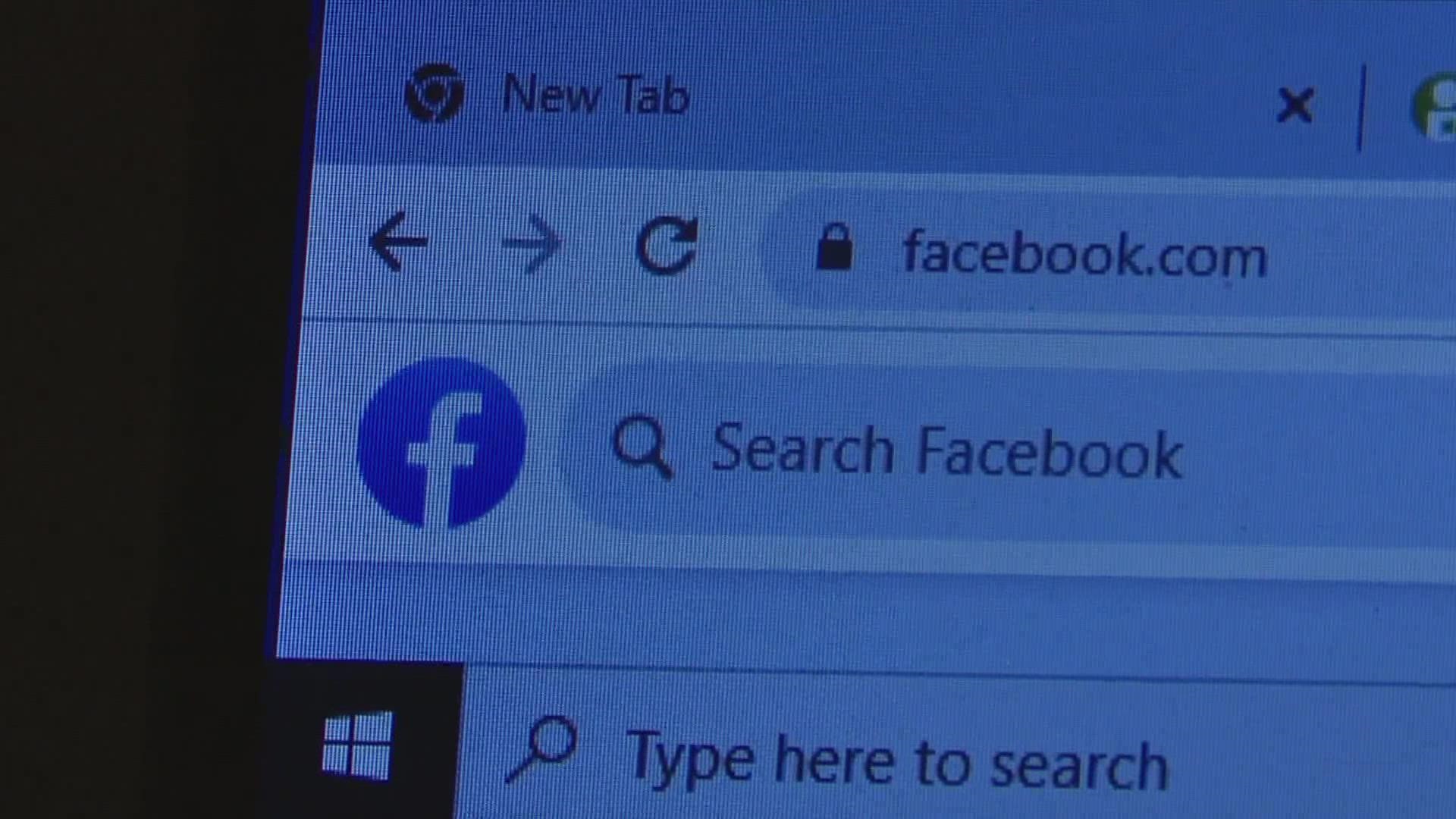WASHINGTON — Scammers are working overtime this holiday season and with Facebook Marketplace becoming a hot spot for buying and selling gifts, it's essential to be aware of potential scams.
Three-quarters of U.S consumers have experienced or been targeted at least by one form of fraud tied to the holidays, according to an AARP survey. Aside from phishing emails, common scams include overpayments, counterfeit items and fake shipping links.
How to avoid scams this holiday season
Be wary of too-good-to-be-true deals: If something seems too cheap (or too expensive), it could be a scam.
Be sure to research, compare prices and reverse image search to ensure you're getting a fair deal. Lack of photos, meager prices and unusual spelling may be red flags.
For items like watches, name-brand purses and jewelry, Facebook Marketplace recommends verifying the item's validity. It's best to ask for a certificate of authenticity or proof of purchase to avoid buying counterfeit items.
Facebook also recommends buyers disregard any sellers prompting them to make additional payments after completing the transaction.
An important practice is to review the seller's profile, which shows ratings and other activity on the platform.
Meeting up: Buyers and sellers on Facebook Marketplace can meet in person to complete a transaction. However, it is imperative to meet in a public, well-lit area and to share your location with a family member or friend.
Avoid meeting up at your house or even sharing your home address, according to Facebook's safety tips. Facebook Messenger has the option of sending meet-up plans to your Facebook friends as well.
Make sure your phone is charged, and consider having the local authorities on speed dial. You can always meet near a law enforcement agency if you're worried about safety.
If you're buying electronics, turn on the product and ensure it works.
Secure payment methods: Avoid transferring money directly into a seller's account, as it doesn't offer any protection. Zelle, CashApp and Venmo have become popular payment methods, but consumers should beware of frequent scams involving false payment links.
Facebook protects consumers with Facebook Checkout, which allows the platform to mediate disputes and issues with an order. Check Facebook's Purchase Protection policy to see all eligible purchases.
The Federal Trade Commission also warns consumers about gift card payments as they are a "scammer's favorite way to steal money." Other common payment scams include cashier and certified checks, which can be counterfeit. Facebook recommends sticking to PayPal for outside person-to-person payment sites.
Beware of overpayments -- yes, it's a scam: Meta warns sellers on Facebook Marketplace about overpayment scams. Sellers should reject any overpayments for items, especially if buyers ask to be reimbursed after the transaction. Overpayments are often part of a counterfeit cashier's check scheme, according to Facebook's guidelines.
Don't give out personal information: Often, a scammer's primary goal is to get your personal information.
Beware sellers or buyers asking for financial information such as a PayPal login or a bank account number. It's best to keep this information private and only share it with trusted individuals.
Verification codes are also a common scam. Facebook sellers and buyers should avoid responding to any messages or emails that prompt a verification code, such as an email address and password, according to Facebook's guidelines.
If you're selling electronics, wipe any personal information from the device.
Keep communication on Facebook: Most of the time, scammers try to communicate outside of Facebook, but having a record of your conversations can help with any later payment or purchase issues.
Report suspicious activity: If you encounter a suspicious listing or experience any fraudulent activity on the platform, report it to Facebook immediately.
For more information, check Facebook's complete guidance on selling and buying on Facebook Marketplace.
How to report a Facebook Marketplace scam
If you think you've spotted a scam on Facebook Marketplace or found yourself wrapped within the strings of one, you should report the incident to Facebook.
For listings, click the seller's name and go to the three-dot menu. Click report seller from the dropdown menu and follow the on-screen instructions.
If you're a seller and might be dealing with a scammer, Facebook also allows you to report them. Click the three dots while in the conversation with the buyer and click "report buyer." Facebook will prompt you to fill out a scam report if you select "scam" as the reason.

